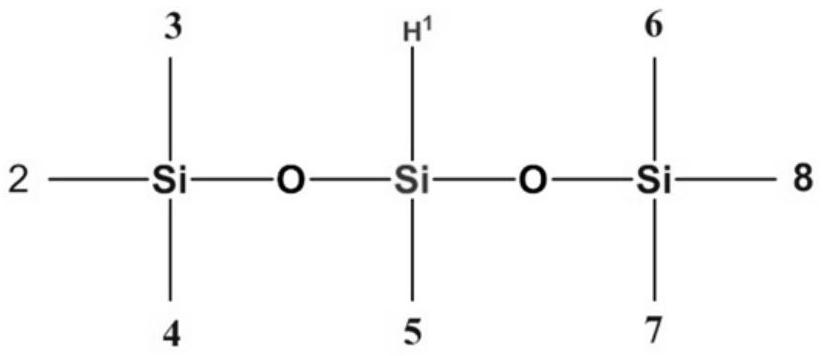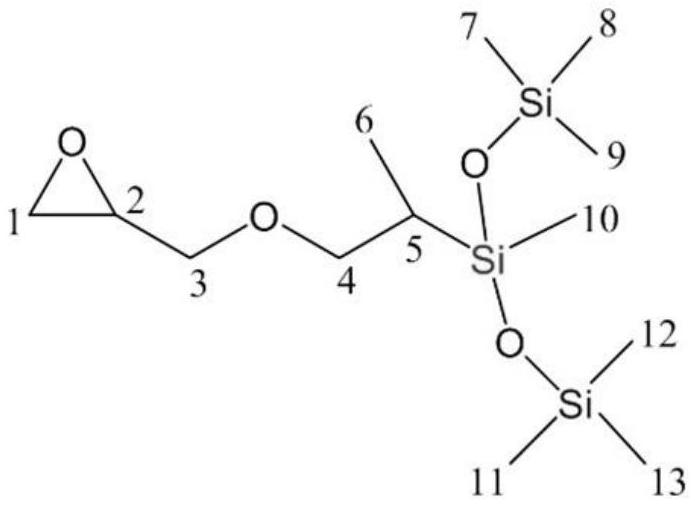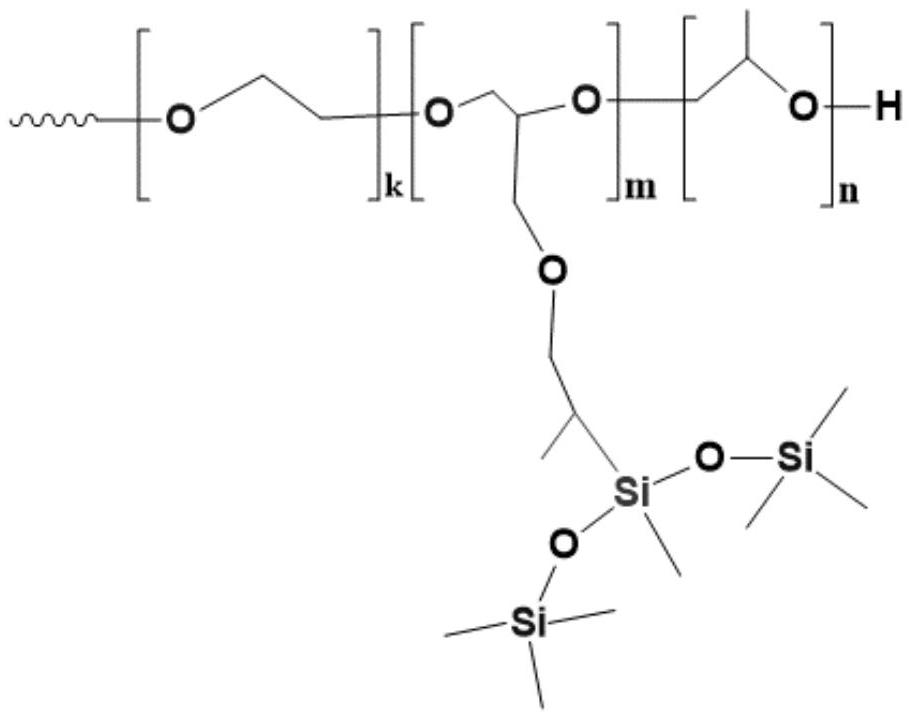A kind of organosilicon modified self-cleaning polyurethane oil paint and preparation method thereof
An oil-based coating, silicon modification technology, applied in the direction of polyurea/polyurethane coatings, coatings, etc., can solve the problems of harsh conditions, inability to achieve super-hydrophobicity, practical limitations, etc.
- Summary
- Abstract
- Description
- Claims
- Application Information
AI Technical Summary
Problems solved by technology
Method used
Image
Examples
Embodiment 1
[0021] The preparation method of the silicone-modified self-cleaning polyurethane oily coating of the present embodiment may further comprise the steps:
[0022] Step 1. Addition reaction of allyl glycidyl ether and heptamethyltrisiloxane (molar ratio: 1:1), using chloroplatinic acid as a catalyst, and reacting for 6 hours at a reaction temperature of 80°C under nitrogen protection , to obtain modified allyl glycidyl ether. Chloroplatinic acid is added in the form of a solution, the solvent is toluene, the concentration of chloroplatinic acid in the solution is 20ppm, and the amount of chloroplatinic acid solution added is 50% of the total mass of the material, while the reaction is condensed and refluxed, after the reaction is finished, the distillation Remove solvent.
[0023] Step 2, add propylene oxide and diethylene glycol to the modified allyl glycidyl ether obtained in step 1, the molar ratio of allyl glycidyl ether to polyol is 2:1, and carry out polymerization in the...
Embodiment 2
[0031] The preparation method of the silicone-modified self-cleaning polyurethane oily coating of the present embodiment may further comprise the steps:
[0032] Step 1, polymerize 1mol allyl glycidyl ether, 11mol propylene oxide and 1mol ethylene glycol, the reaction conditions are potassium hydroxide catalysis (addition amount is 0.1% of the total mass of the material), nitrogen protection, 100 ° C reaction 6h to obtain polyether diol.
[0033] In step 2, add 1 mol of heptamethyltrisiloxane to the polyether diol obtained in step 1. The reaction conditions are catalyzed by chloroplatinic acid, protected by nitrogen, and reacted at 90°C for 5 hours. The chloroplatinic acid is in the form of a solution Add, solvent is xylene, and the concentration of chloroplatinic acid in solution is 50ppm, and the addition of chloroplatinic acid solution is 30% of material gross mass, carries out condensing reflux while reacting, after reaction finishes, distillation removes solvent, obtains ...
Embodiment 3
[0038] The preparation method of the silicone-modified self-cleaning polyurethane oily coating of the present embodiment may further comprise the steps:
[0039] Step 1. Addition reaction of allyl glycidyl ether and heptamethyltrisiloxane (molar ratio: 0.8:1), using chloroplatinic acid as a catalyst, and reacting for 7 hours at a reaction temperature of 60°C under nitrogen protection , to obtain modified allyl glycidyl ether. Chloroplatinic acid is added in the form of a solution, the solvent is isopropanol, the concentration of chloroplatinic acid in the solution is 3ppm, and the amount of chloroplatinic acid solution added is 90% of the total mass of the material, while the reaction is condensed and refluxed, the reaction ends The solvent was then distilled off.
[0040] Step 2, adding propylene oxide and dipropylene glycol to the modified allyl glycidyl ether obtained in step 1, the molar ratio of allyl glycidyl ether to polyol is 1:1, and the polymerization reaction is ca...
PUM
| Property | Measurement | Unit |
|---|---|---|
| adhesivity | aaaaa | aaaaa |
| adhesivity | aaaaa | aaaaa |
| adhesivity | aaaaa | aaaaa |
Abstract
Description
Claims
Application Information
 Login to View More
Login to View More - R&D
- Intellectual Property
- Life Sciences
- Materials
- Tech Scout
- Unparalleled Data Quality
- Higher Quality Content
- 60% Fewer Hallucinations
Browse by: Latest US Patents, China's latest patents, Technical Efficacy Thesaurus, Application Domain, Technology Topic, Popular Technical Reports.
© 2025 PatSnap. All rights reserved.Legal|Privacy policy|Modern Slavery Act Transparency Statement|Sitemap|About US| Contact US: help@patsnap.com



